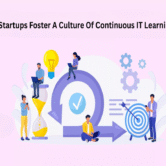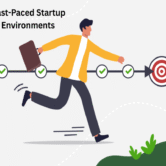
What are the challenges of IT education in fast-paced startup environments?
Time Constraints and Competing Priorities
- Employees may be too busy with urgent tasks to attend training.
- Learning often gets postponed in favor of deadlines or product launches.
- Limited scheduling flexibility can prevent live session attendance.
- Startups may lack dedicated L&D resources to manage training.
- Training may feel secondary to day-to-day survival and growth.
Rapidly Changing Technology
- Tools and platforms may evolve before training is completed.
- Frequent process changes make training material outdated quickly.
- New software integrations may require continuous retraining.
- Employees may feel overwhelmed by constant system updates.
- Content maintenance becomes difficult for internal teams.
Limited Budget and Resources
- Startups may not afford premium training platforms or consultants.
- Small teams often juggle multiple roles with no dedicated trainers.
- Hiring internal experts to lead IT training may not be viable early on.
- Open-source or free tools may lack structured learning paths.
- Tracking and managing training progress manually becomes time-intensive.
Skill Gaps and Learning Variability
- Team members may start at vastly different skill levels.
- Some employees may resist technical training due to lack of confidence.
- Non-technical teams may struggle with platform jargon or complexity.
- One-size-fits-all training may not suit diverse job functions.
- Identifying skill needs without formal assessments is difficult.
Balancing Innovation and Structure
- Fast-moving cultures may undervalue documentation and process discipline.
- Startups may skip structured training in favor of “learn-as-you-go” models.
- A lack of process standardization can reduce training consistency.
- Fear of slowing momentum may discourage long-term planning.
- Informal onboarding may result in critical knowledge gaps over time.





